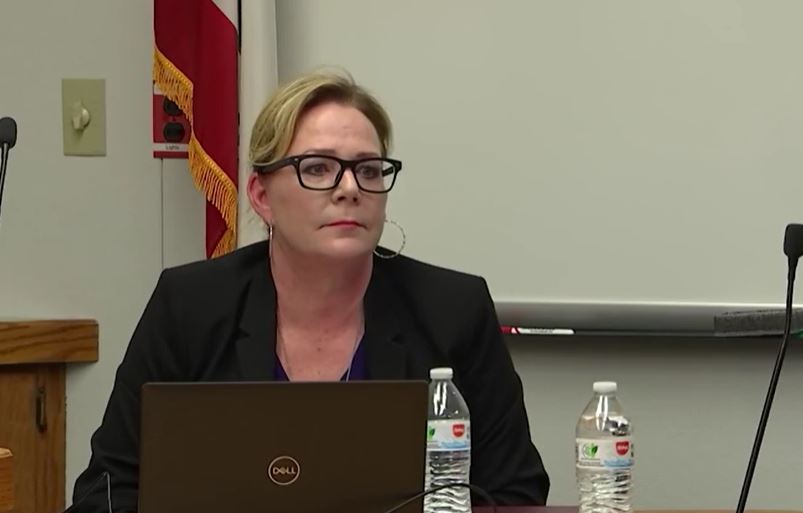San Jose Police Chief Chris Moore announced this afternoon that he plans to retire by late January 2013.
At a 2 p.m. news conference at San Jose police headquarters, Moore announced his decision to retire in front of members of the San Jose City Council, City Manager Debra Figone, Independent Police Auditor Judge LaDoris Cordell, San Jose Police Officers Association President Jim Unland and numerous members of the police department.
Mayor Chuck Reed was invited but did not attend the news conference, which was characterized by Figone as "last minute." Moore said he had been considering retirement for the last six weeks and planned to notify officers at their shift report meetings throughout the day and tomorrow morning.
Figone said the city would begin looking at new candidates to fill Moore's position immediately.
When asked why he was retiring, Moore said he wanted to spend more time with his family.
"Although I'm leaving a little sooner than...I might have thought, 30 years is a great sort of benchmark for me... it's a good long solid career...this is a happy day for me and my family."
When he retires in January, Moore's term as chief will have lasted a few months longer than two years including his time as acting chief.
Local
During a statement in which he became teary-eyed more than once, Moore mentioned a deep appreciation for his colleagues and talked about some of the successes and challenges he faced during his term, which began when he was named acting chief in October 2010.
"It's a nonstop, 24-7 job," Moore said of being chief, adding that especially in his first year, he often worked 80- or 90-hour weeks.
Moore also described the process of laying off officers in 2011 because of budget cuts as the "gut wrenching...low point" in his career.
He also spoke about the department's difficulty retaining its officers.
"We have a number of officers leaving. We are not as competitive as we need to be. It's a challenge," Moore said, referring to the 54 officers who have resigned and the 51 who have retired since July of last year.
Moore added that he did not envy the next chief.
San Jose's next police chief will likely need to grapple with the continued loss of officers, according to the Police Officers' Association.
Unland warned that the implementation of voter-approved Measure B, a pension reform measure that has sparked both state and federal lawsuits between members of police officers and firefighters unions and the city, would make retention even more difficult.
"If it's implemented next year, you're going to see hundreds of officers leave," Unland said speaking to reporters after today's news conference.
"The elephant in the room is there's no confidence in city hall. As we continue to lose officers, the city's doing nothing to retain them," said Unland.
District 2 City Councilman Ash Kalra said that he was disappointed to hear about the Chief's resignation, but also understood it.
"Chris Moore has spent much of his life helping to build this department into one of the finest departments in the nation and I imagine its very hard for him to bear watching it dismantle, one officer at a time as they walk out the door," Kalra said.
Word of Moore's announcement came about an hour after the San Jose Police Officers' Association released a statement noting that the time it takes police to respond to "priority two" calls, which include domestic violence incidents, attempted rapes and gang disturbances, has increased from about 11.5 minutes to nearly 18 minutes since 2008.
Response time to the highest priority calls, including homicides, kidnappings, and home invasion robberies had increased by more than half a minute, according to the Police Officers' Association.
Although Moore seemed optimistic about a new chapter in his life, many officials in the room seemed wistful about losing the current chief.
"I think it is a very sad day for the city of San Jose," Cordell said, adding that Moore had established a cooperative relationship with her office that led to a number of reforms, such as redefining biased-based policing, also known as racial profiling.
Figone said she had tried to convince Moore to stay.
But Moore insisted, "there is life after police work. There really is."



